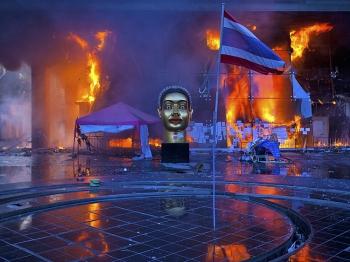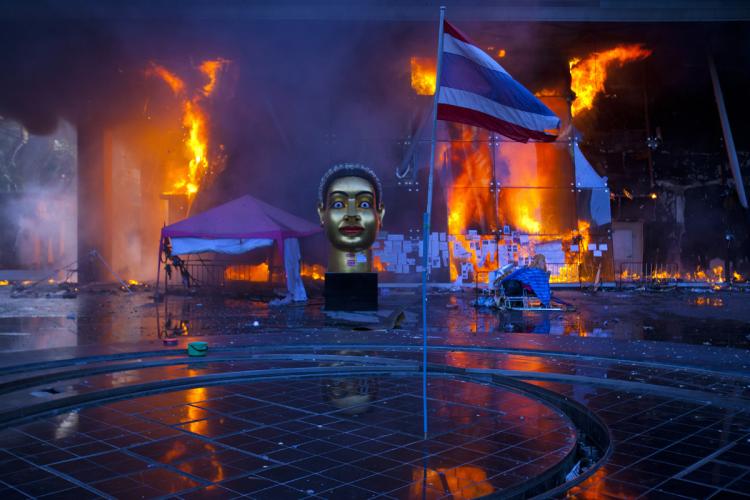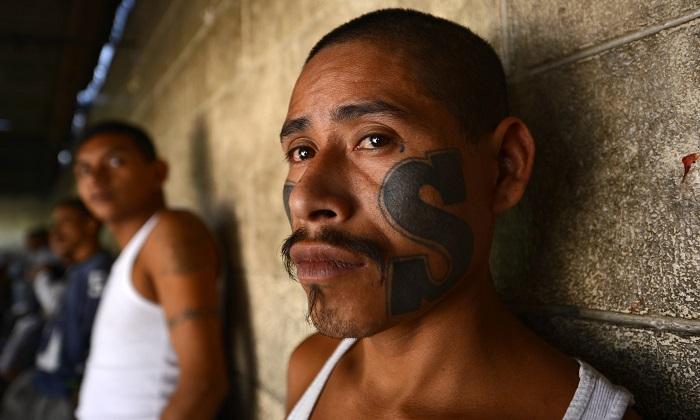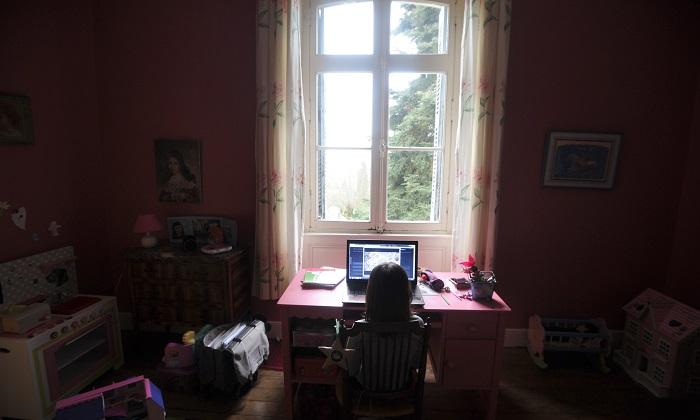BANGKOK—It has been one year since the center of Bangkok was held hostage by anti-government protesters aligned to a former prime minister living in exile to avoid incarceration for corruption.
Last year’s large-scale protests by red shirts in the Thai capital began in mid-March, turned ugly by April, and would further degenerate during May into something more akin to urban warfare.
The red shirts—more formally known as the United Front for Democracy Against Dictatorship—were attempting to force the current government led by Prime Minister Abhisit Vejjajiva to call for early elections, something he didn’t do for another year.
They accused Abhisit of being the unelected front for the Bangkok elite and the Thai military, who the red shirts say are behind the yellow shirts and the 2006 coup against their elected prime minister, Thaksin Shinawatra. Fresh elections followed the coup, resulting in a pro-Thaksin party coming to power, which was soon forced from office—the result of mass protests by the yellow shirts, and a court ruling. Abhisit was appointed prime minister as a result.
Since 1932, Thailand has suffered 18 coups and has been ruled by 23 military governments and nine military dominated governments.
One thing that longtime expats and locals have told me, is that once a coup happens, Thais mostly shrug it off and continue on as usual—but not this time. What’s been happening in the country over the past five years is quite the opposite.
People say that never before have they witnessed such turmoil in Thailand, with anti-government protests spiraling out of control as they did, leaving over 90 people dead and more than 1,000 injured.
When the Thai military ejected the protesters on May 19 from their sprawling fortified camp in a high-end retail district of Bangkok, hardcore red shirts set fire to over 30 major buildings, such as the country’s stock exchange and Southeast Asia’s second largest shopping mall.
The destruction stunned Bangkokians and the broader international community. Meanwhile the rural-based, working class red-shirt rank and file felt further aggrieved by the military’s action against them. The affront included the killing of six people at a Buddhist temple, which had been a demilitarized “safe haven.”
Among those shot to death was a 25-year-old female nurse tending to a badly wounded man at the front of the temple.
New York-based Human Rights Watch recently published a 156-page report about last year’s events and it dedicated eight pages to the temple shootings. HRW researchers point the finger at the Thai military for the killings.
The report also offered details of how red shirt leaders had earlier threatened to burn Bangkok down if the military attacked their camp and how the movement was supported by a well-armed and trained militant wing.
Now a year later, the country remains profoundly divided by last year’s events and many believe the upcoming elections scheduled for early July will only worsen political tensions. After all, just this week Thaksin’s younger sister announced her candidacy to lead her brother’s old party—or a reincarnation of it—in the race to lead the country.
“It is clear that both sides still have very raw feelings about what happened last year. ... The campaign period is going to exacerbate this problem,” HRW’s Asia chief Brad Adams, told reporters in Bangkok last week, as quoted by AFP.
Last year’s large-scale protests by red shirts in the Thai capital began in mid-March, turned ugly by April, and would further degenerate during May into something more akin to urban warfare.
The red shirts—more formally known as the United Front for Democracy Against Dictatorship—were attempting to force the current government led by Prime Minister Abhisit Vejjajiva to call for early elections, something he didn’t do for another year.
They accused Abhisit of being the unelected front for the Bangkok elite and the Thai military, who the red shirts say are behind the yellow shirts and the 2006 coup against their elected prime minister, Thaksin Shinawatra. Fresh elections followed the coup, resulting in a pro-Thaksin party coming to power, which was soon forced from office—the result of mass protests by the yellow shirts, and a court ruling. Abhisit was appointed prime minister as a result.
Since 1932, Thailand has suffered 18 coups and has been ruled by 23 military governments and nine military dominated governments.
One thing that longtime expats and locals have told me, is that once a coup happens, Thais mostly shrug it off and continue on as usual—but not this time. What’s been happening in the country over the past five years is quite the opposite.
People say that never before have they witnessed such turmoil in Thailand, with anti-government protests spiraling out of control as they did, leaving over 90 people dead and more than 1,000 injured.
When the Thai military ejected the protesters on May 19 from their sprawling fortified camp in a high-end retail district of Bangkok, hardcore red shirts set fire to over 30 major buildings, such as the country’s stock exchange and Southeast Asia’s second largest shopping mall.
The destruction stunned Bangkokians and the broader international community. Meanwhile the rural-based, working class red-shirt rank and file felt further aggrieved by the military’s action against them. The affront included the killing of six people at a Buddhist temple, which had been a demilitarized “safe haven.”
Among those shot to death was a 25-year-old female nurse tending to a badly wounded man at the front of the temple.
New York-based Human Rights Watch recently published a 156-page report about last year’s events and it dedicated eight pages to the temple shootings. HRW researchers point the finger at the Thai military for the killings.
The report also offered details of how red shirt leaders had earlier threatened to burn Bangkok down if the military attacked their camp and how the movement was supported by a well-armed and trained militant wing.
Now a year later, the country remains profoundly divided by last year’s events and many believe the upcoming elections scheduled for early July will only worsen political tensions. After all, just this week Thaksin’s younger sister announced her candidacy to lead her brother’s old party—or a reincarnation of it—in the race to lead the country.
“It is clear that both sides still have very raw feelings about what happened last year. ... The campaign period is going to exacerbate this problem,” HRW’s Asia chief Brad Adams, told reporters in Bangkok last week, as quoted by AFP.






